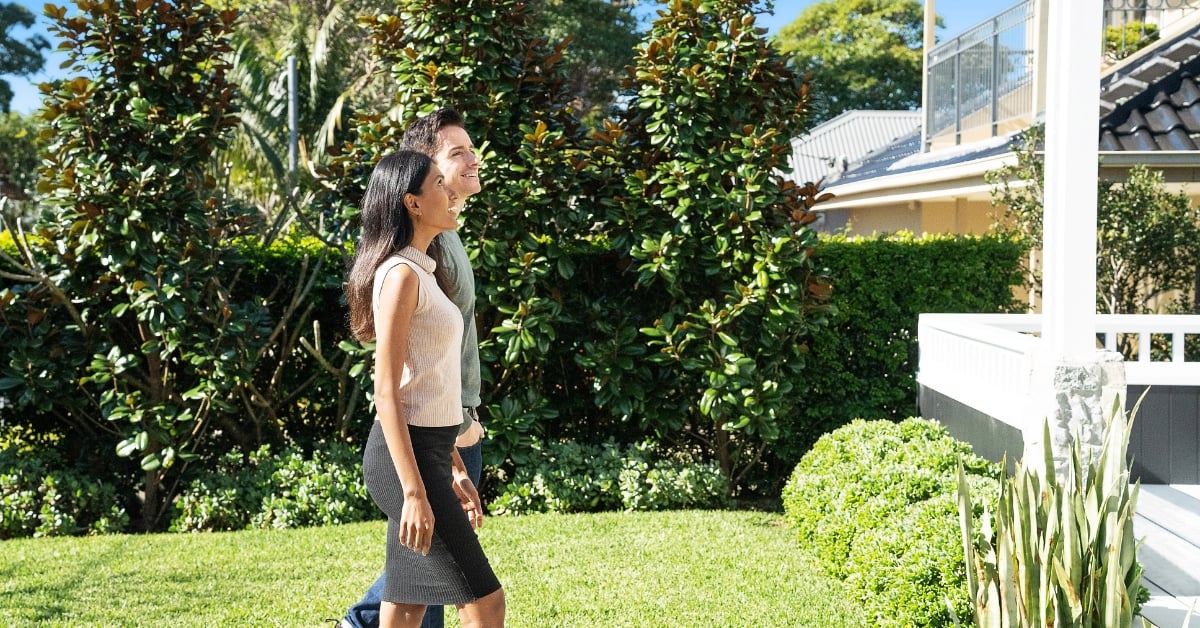First-Time Renters FAQs
What are the benefits of renting?
There are considerable benefits to renting such as:
- Affordability
- Ability to move easily from a property, a suburb, a town or a city
- Ability to upsize and downsize easily – to better adapt your living arrangements to your finances
- Majority of maintenance and repair costs are covered by your landlord
- Access to amenities that you otherwise may not be able to pay for, like a pool or a gym
- No land tax to pay
What are the best ways to find a rental property?
One of the best places to search for rental properties is on-line. Portal such as ljhooker.com.au, realestate.com.au, domain.com.au and homehound.com.au and even gumtree.com.au are great places to start.
For the real estate portals you can specify the suburb/s where you want to rent, number of bedrooms, price and other features and you will be presented with a shortlist of available properties that meet your requirements. Make sure you save your search criteria and set up property alerts so you are notified of any new rental properties as they become available.
What should you look for when inspecting a rental property?
Making sure you thoroughly inspect a rental property before you sign a lease is vital. You should look at the following:
This, along with budget is one of the most important decisions you need to make. It is worth spending time ranking the following features as Essential, Preferable or Handy.
Location
- Close to work
- Close to schools
- Close to park
- Close to shops
- Close to amenities eg hospital
- Close to sports grounds
- Close to transport
- Close to family and friend
- Close to leisure activities
Internal Features
- Number of bedrooms
- Separate dining room
- Separate children's rumpus room
- Open plan layout
- Number of bathrooms
- Modern kitchen
- Built in wardrobe
- Additional storage
External Features
- Garden
- Garage or off street parking
- Outdoor area
- Security
- Low maintenance
- Fully renovated /landscaped
- Access to property
What can I use as a reference if I haven’t rented before?
A property manager will be mainly concerned with an applicant's ability to pay the rent, as well as their ability to take care of the property and comply with the terms and conditions of the lease.
The information you should supply will vary depending on your previous circumstances - for example, if you were previously living in student accommodation, you may wish to provide the details of the person who was in charge of managing the complex.
If you previously owned your own home and have sold the property, the agent who handled the sale may be able to act as a reference for you.
And if you are currently living at home, you will require personal references. In some situations, you may also choose to have a parent co-sign your lease with you.
Examples of documentation you can provide that will help a property manager make these decisions include:
- Verification of employment
- Verification of income
- Reference from employer or fellow staff member
- Reference from neighbour/teacher/business person/doctor/accountant
- Photo identification - driver's licence/passport/student ID
- Three personal references - these should not be from relatives
- Last gas/electricity/phone bill or rates notice
Why is your credit history important?
Landlords like tenants who are clean: Clean house upkeep, clean manners and perhaps most importantly, clean credit. Just like an application for a home loan, landlords can request a copy of your report to study your credit history and determine your ability to pay rent. Agents or landlords can only have access to the second part of your report, which is known as Public Record Information.
This can include accounts of court judgements in relation to debt, bankruptcy and directorships. Unfortunately, we are defined by our history, therefore landlords may be reluctant to offer you residence if your report portrays you in a bad light.
What happens if you don’t have a credit history?
In place of a report, simply bring proof of income (a couple of pay slips) and a recent bank statement to show evidence of savings. Provided these documents prove that your income is steady and you have savings set aside, your landlord should be well and truly assured.
What is a residential tenancy agreement?
A residential tenancy agreement is a legally binding written contract between you, as a tenant or resident and a property landlord. It is also commonly called a lease. This document should be given to the tenant before paying any money or being committed to the tenancy. Make sure you read it carefully and ask any questions.
What goes into the Tenancy Agreement?
- The name and address of the tenant, and the property manager/owner or provider
- the dates when the agreement starts and ends (or state that the agreement is periodic)
- details about how the tenant should pay the rent and how much rent is to be paid
- details about what the tenant and the property manager/owner or provider can and cannot do, known as 'standard terms'
- any special terms (these should be agreed in advance, e.g. that dogs are allowed but must be kept outside or carpet cleaning)
- The length and type of tenancy - either a fixed term agreement where the tenant agrees to rent the property for a fixed term such as 6,9,12 months or a periodic agreement when a tenant / resident lives there for an indefinite period
- The amount of bond required
- Other conditions and rules.
What is a bond?
A bond is a separate payment to rent, it is money that acts as security for the landlord or owner in case you don't meet the terms of your lease agreement.
At the end of your agreement if the property is in need of cleaning or repairs or if items need to be replaced the landlord or owner may claim some or all of the bond.
As the bond is a separate payment to the rent you cannot use any part of the bond as rent – so, when you are moving out, you cannot ask the landlord to keep your bond as final rent payment.
What is a condition report?
A condition report is a document given to your tenants at the beginning of their tenancy that records the general state of repair and condition of your property on a room by room basis, including fittings and fixtures.
The report is used as a reference point when tenants move out of your property to determine if there was any damage caused the property while they were living there. At the final property inspection either yourself or your property manager will refer to this report and check off each item listed in it to make certain that the property is in the same condition as when the tenant took possession. It is at this inspection that any items that need to be replaced or repaired by the tenant are identified.
Why is it important to have a condition report?
This report documents the general condition of your property and is a key piece of evidence at the end of the tenancy if there is a dispute about replacing missing items, paying for cleaning or damages, so it is important you that you spend time checking the report to ensure it accurately reflects your property.
We suggest taking photos of the property before the tenants move in and provide a copy of these photos to your agent / landlord as record of the properties original condition.
What is the National Tenant Database?
Tenancy databases hold information about tenants. Tenants are listed in the database for one or both of the following reasons:
- You have vacated owing an amount of more than the rental bond for a breach that is still outstanding
- The tribunal has made an order terminating the agreement because of something you have done wrong.
- The information recorded on at database will identify the reason for the listing in an accurate and complete way?
How do you know if you have been listed?
Landlords or agents must notify you in writing if they want to list you on a tenancy database. They must give you 14 days to object before listing you on the database. You can apply to the tribunal if you think the proposed listing is incorrect or unjust. You are entitled to a copy of the information from the person who listed you (free of charge) or direct from the database operator, but they can charge you a fee but it is not allowed to be excessive.
What documents should I receive before moving in?
The documentation required to be given to you at the time of sign-up differs slightly from state to state, however, the following items are required in most jurisdictions:
- Information booklet relating to renting in your state or territory:
- Copy of the residential tenancy agreement
- Copy of the bond lodgement form
- Original and copies of the condition report - to be checked, completed and signed, then returned to the office in the required time frame
- Receipt for initial rent amount, lease fees and bond
- Photocopy of all keys and remote controls (if any)
- Emergency contact details
Why are routine inspections carried out?
Your property manager will carry out periodic inspections of your investment property to ensure it is being well cared for and any routine repairs are being made. Each state or territory has different allowances around the number of inspections per year and check your property manager for how you will be notified of the upcoming inspection; will you be notified by post or email of an upcoming inspection.
This inspection should include the following:
- The lease terms are being honoured.
- The property is being maintained in a clean and tidy condition.
- The grounds are being maintained in a clean and tidy condition.
- The property is not being damaged in any way.
- There are no more than the number of people specified on the tenancy agreement living at the property.
- No pets are housed at the property, unless otherwise agreed to.
- Any maintenance issues identified can be attended to.
DISCLAIMER - The information provided is for guidance and informational purposes only and does not replace independent business, legal and financial advice which we strongly recommend. Whilst the information is considered true and correct at the date of publication, changes in circumstances after the time of publication may impact the accuracy of the information provided. LJ Hooker will not accept responsibility or liability for any reliance on the blog information, including but not limited to, the accuracy, currency or completeness of any information or links.




